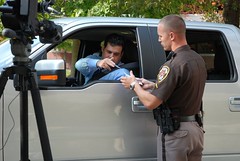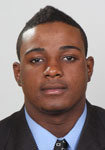Back in August, I wrote about the arrest of former Big Dig chief Matthew Amorello for operating under the influence of alcohol. Amorello is a former chief of the Massachusetts Turnpike Authority, but best known for resigning his post after part of the Ted Williams Tunnel collapsed during the Big Dig, killing a woman. He reentered the news this summer when he was arrested for operating under the influence and leaving the scene of an accident. According to reports, Amorello crashed his SUV into two parked cars in Haverhill, then drove away even though he’d lost one wheel. Authorities found his Ford Explorer parked at a Mercedes dealership with him unconscious inside. Reports in following days noted that he missed a court date because he was hospitalized.
The Boston Globe reported Nov. 30 that Amorello has arranged a kind of plea deal with the Haverhill District Court. Amorello admitted to sufficient facts to prove the OUI and leaving the scene charges, which is not quite the same as a guilty plea. Rather, it means he admits that a jury would have the facts necessary to convict him if his case went to trial. The judge in the case continued his case without a finding for a year. If Amorello can stay out of trouble for that year, the case will be dismissed.
Read article: Ex-Mass. Pike chief admits drunken driving
I’d like to discuss Amorello’s sufficient facts plea, because it’s part of my set of tools as a Massachusetts drunk driving criminal defense lawyer. Admitting sufficient facts is a lot like a guilty plea, but it could be slightly better for someone in a public service position like Amorello used to hold. A plea of sufficient facts shows up on your Massachusetts driving record just like a conviction would. However, it does not show up on a background check by any agency other than a law enforcement agency. This would allow Amorello to plead guilty and serve the sorts of penalties that a guilty plea creates, but maintain his ability to truthfully answer “no” when asked if he was ever convicted of a crime. The incident will not show up when potential employers, landlords and other non-police organizations check for a criminal background.
Often, people who admit to sufficient facts are first OUI offenders who end up sentenced to alternative disposition. As a Massachusetts OUI criminal defense attorney, I prefer this for all of my clients who are not fighting the charges, because the penalties are better for the client. Alternative disposition calls for up to two years of probation, not jail; loss of your driver’s license for 45 days, not 90 days to a year; and lower fines. That isn’t to say that alternative disposition is a light penalty or fun for the driver. For one thing, any mistake that violates probation could cancel the deal and force a guilty plea. But for drivers whose best strategy is a guilty plea, admitting sufficient facts and serving probation successfully can help them admit their mistakes and pay the penalties without allowing those mistakes to haunt them for the rest of their lives.
 Massachusetts DUI Lawyer Blog
Massachusetts DUI Lawyer Blog


 Prospective employers, dates, coworkers and friends can find information about most of us online. Unfortunately, that can include news reports about our misdeeds and mistakes. A number of candidates who ran for office this year have learned this the hard way, from Delaware Senate candidate Christine O’Donnell’s claims to have been involved with witchcraft to Massachusetts Republican Jon Golnik’s OUI arrest in 2001. As a
Prospective employers, dates, coworkers and friends can find information about most of us online. Unfortunately, that can include news reports about our misdeeds and mistakes. A number of candidates who ran for office this year have learned this the hard way, from Delaware Senate candidate Christine O’Donnell’s claims to have been involved with witchcraft to Massachusetts Republican Jon Golnik’s OUI arrest in 2001. As a  Those of us who followed the progress of the
Those of us who followed the progress of the 